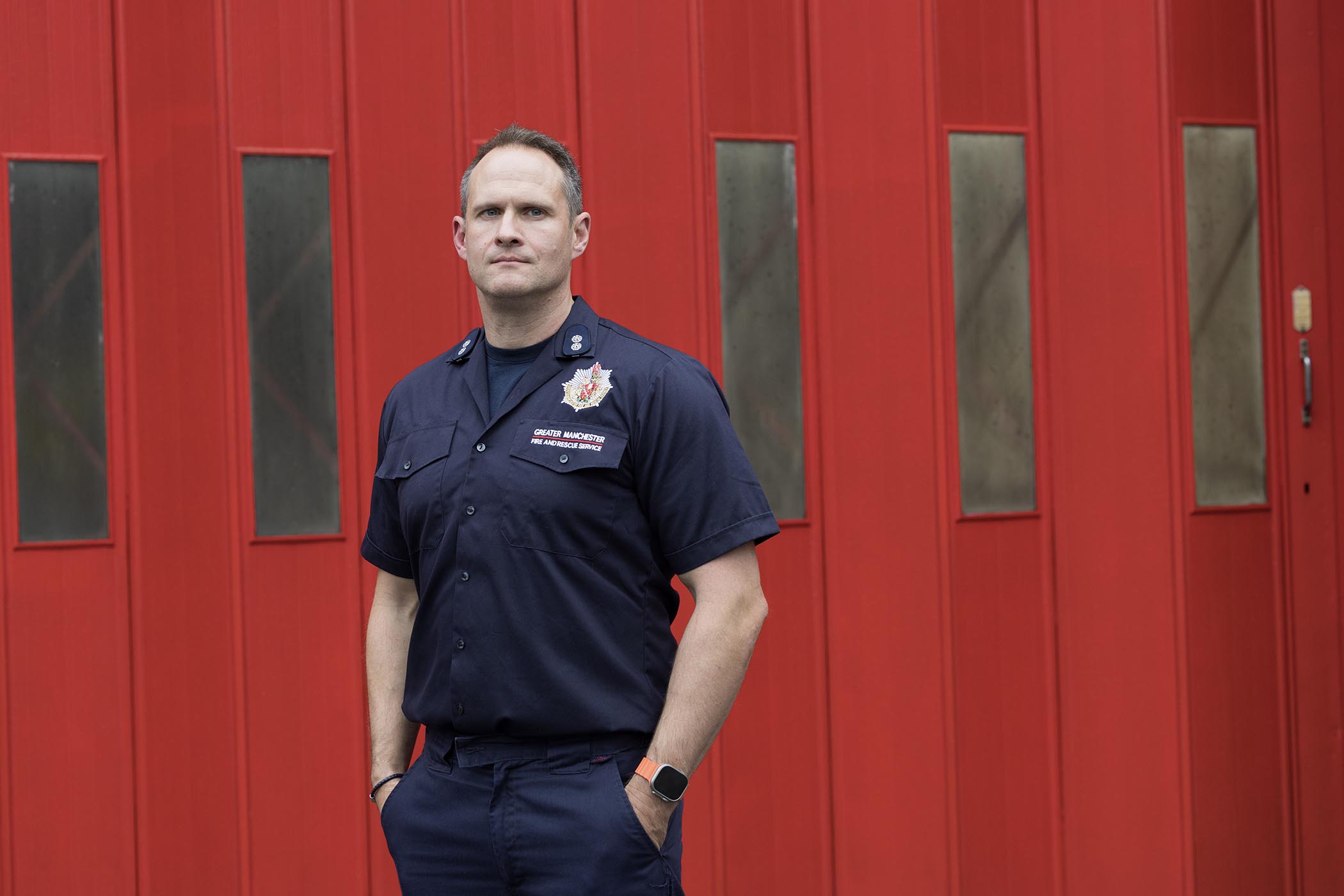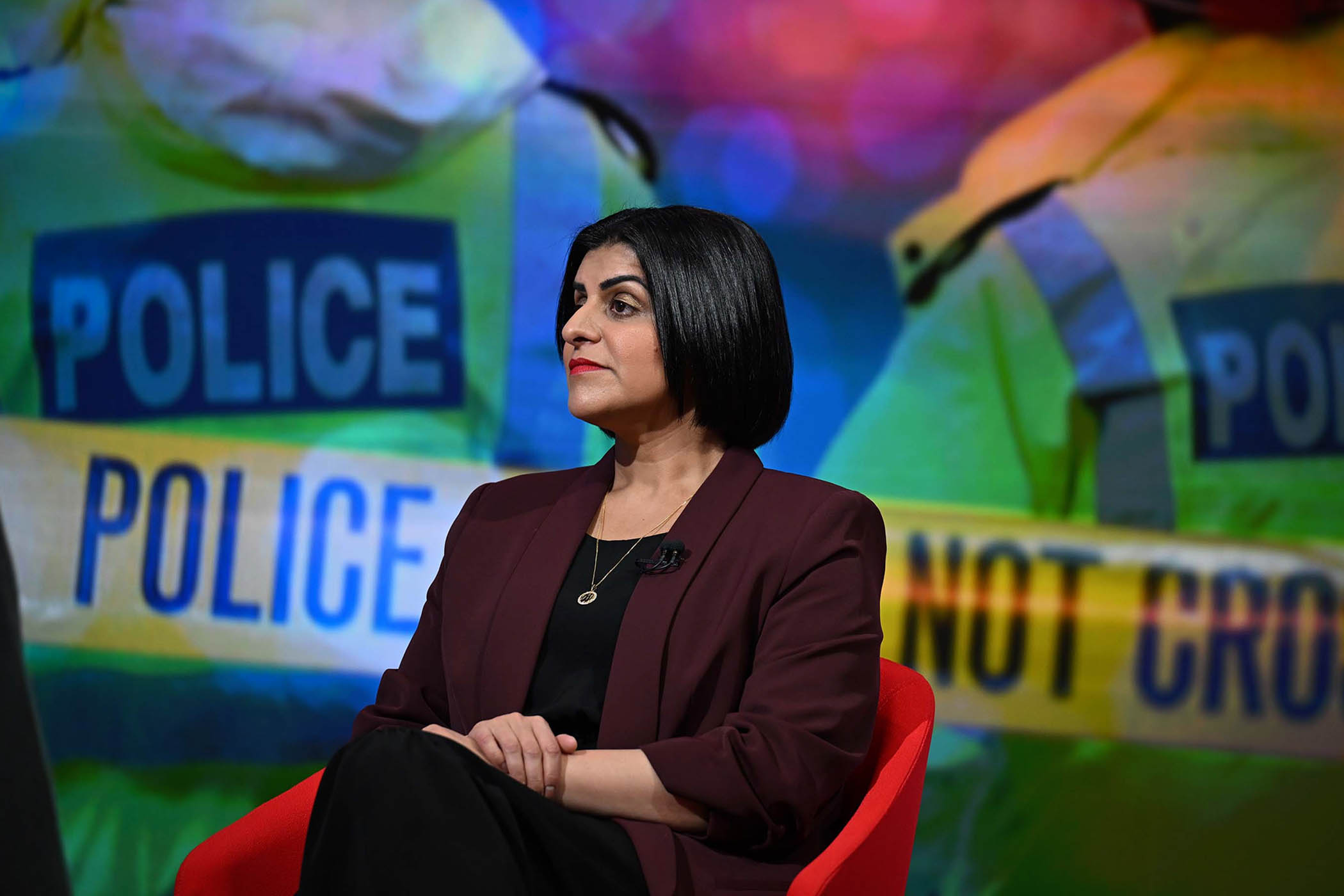The attacker struck on the holy Jewish day of atonement. For one firefighter the day would turn out to be exactly that.
“I don’t know if it was fate that I was there yesterday, but I’m glad I got the chance to put a lot of things right that I never got the opportunity before,” said Tom Ludley, a watch manager for Greater Manchester fire service.
Ludley had been one of the firefighters held back for more than two hours during the disastrous emergency service response to the Manchester Arena bombing that killed 22 people in 2017.
On Thursday morning he was leading Green Watch to a suspected fire on a route past Heaton Park synagogue when they came across the Yom Kippur terror attack.
“I’ve obviously got a confirmed car accident. I’ve got a guy with severe blood loss, not moving, lying on the floor and then, as we became a bit more aware of the scene, there was a male in the yard of the synagogue.”
The killer’s battered black Kia Picanto had slammed into a security guard who was slumped against a wall. Beside the car in a pool of blood lay Melvin Cravitz, 66, who the killer had stabbed multiple times in the body, neck and head.
Ludley had heard shots fired and shouts from armed officers warning that the suspect had a bomb. He stopped his fire engine just beyond the synagogue complex and got out, using the truck as cover to survey the carnage.
“We obviously became aware that the incident we had come across wasn’t just a run-of-the-mill RTC [road traffic collision] – it was a possible ongoing marauding terror attack.
“So I then made the decision that obviously we weren’t going to progress to the fire at that point because the fire was unconfirmed.”
I would rather take some risk to do a good job than have to live with the thought of not doing it because I’ve done that before and it’s not great
I would rather take some risk to do a good job than have to live with the thought of not doing it because I’ve done that before and it’s not great
Tom Ludley, Greater Manchester firefighter
The Green Watch manager had been prepared for this moment ever since the slow response from the fire service following the arena bombing eight years ago. The emergency services in Greater Manchester have since undertaken 10 major training exercises.
Newsletters
Choose the newsletters you want to receive
View more
For information about how The Observer protects your data, read our Privacy Policy
Ludley was aware that a bomb was possibly strapped to the now prone terrorist’s body and that there were wounded worshippers inside.
Ludley returned to his crew, radioed police and ambulance services and gave them their orders; put on personal protective equipment, fetch trauma kits and “skeds” – foldable plastic stretchers – and go in.
“I can only remember bits of it, to be honest. I think I said we’ve got a probable terror attack. And put your PPE on, get your trauma, get your skeds and we’ll do what we can. We’ll do what we can.”
By this point at least one stray police bullet had gone through the door of the synagogue and two worshippers who were barricading the doors to stop the attacker entering had been struck. Adrian Daulby, 53, died of his injuries. Yoni Finlay, a father of four, was rushed to hospital with a gunshot wound but is recovering.
Despite uncertainty about the possible suicide bomb strapped to the vest of the attacker, Jihad Al-Shamie, Ludley sent four firefighters into the synagogue behind two firearms officers.
“I would rather take some risk to do a good job than have to live with the thought of not doing it because I’ve done that before and it’s not great," Ludley said.
On Friday, he attended a meeting with Greater Manchester mayor Andy Burnham, the home secretary, the prime minister and deputy prime minister, who thanked him and others for their efforts. Now, like so many in Manchester, he is left to pick up the pieces with his team.
“I felt exactly the same eight years ago. It almost doesn’t seem real when you’re in it and you don’t actually get any time to decompress initially, although you obviously get offered it, but you’re trapped in this limbo of needing to break your thoughts down. Probably also not wanting to be away from your team and your friends and your work and so it’s a strange sort of balancing act.”
“I felt immense guilt after the first one, although I now know with clarity none of it was my fault.”
Photograph by Gary Calton/The Observer



